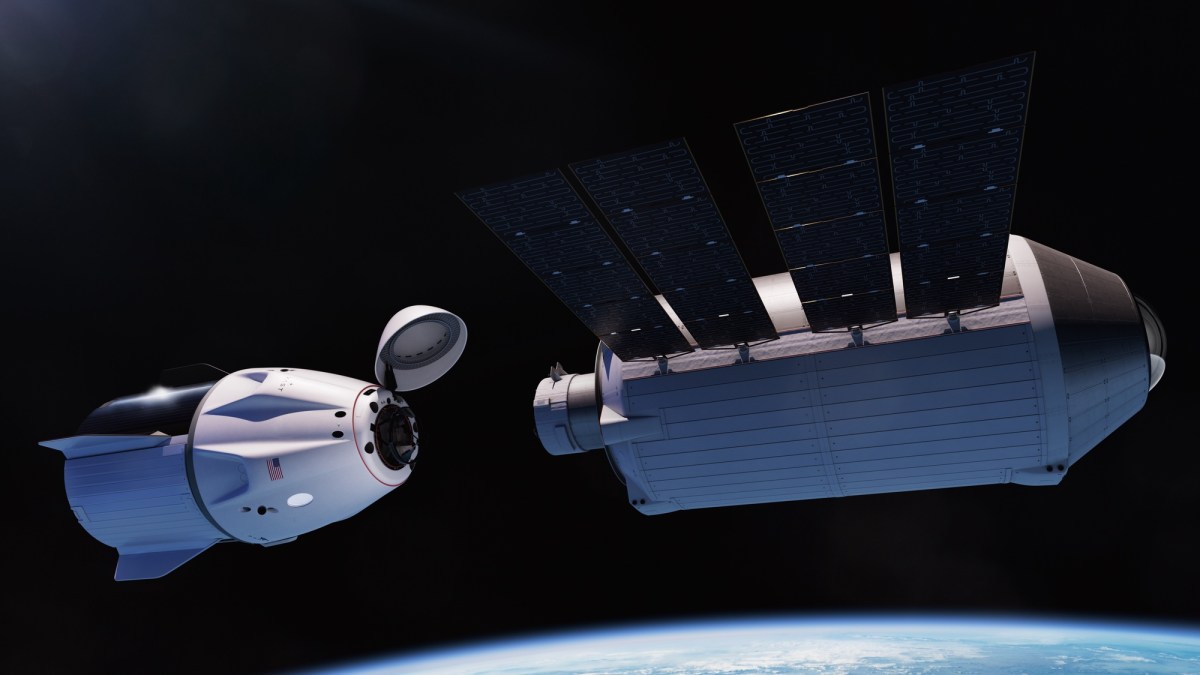LAS VEGAS — Commercial space station developer Vast is partnering with two companies to offer microgravity lab facilities on its upcoming Haven-1 station.
Vast announced Aug. 1 plans for its Haven-1 Lab, a research facility that will be part of its Haven-1 commercial station. That single-module station is scheduled to launch no earlier than August 2025 on a Falcon 9, to be visited by up to four crews on later Crew Dragon missions there.
The Haven-1 Lab will host 10 middeck locker equivalents, a standard payload accommodation used on the International Space Station. Each of those 10 slots can host payloads weighing up to 30 kilograms and using up to 100 watts of power. While the payloads will launch with the station, the company said users will have the ability to return samples or products from them on visiting Dragon spacecraft.
The lab is part of Vast’s efforts to demonstrate to NASA and industry its abilities to develop and operate a commercial space station. “Haven-1 is our demonstration to show NASA we are the best potential awardee that they could have” for the agency’s Commercial Low Earth Orbit Destinations, or CLD, program, said Max Haot, chief executive of Vast, in an interview during the AIAA ASCEND conference. “That obviously includes building a human-rated space station and working with SpaceX on bringing crew, but also includes the payload and the science.”
He said the company then thought about how to best offer that space to potential customers. “We concluded that the best way to do that would be to work with all of the companies that have built a lot of experience getting payloads to ISS.”
That includes partnerships Vast announced with two companies that have experience operating experiments on the ISS. Redwire Space will provide its Advanced Space Experiment Processor (ADSEP) and PIL-BOX pharmaceutical experiment platforms it has flown on the ISS. Yuri, a European space biotech company, will provide its ScienceTaxi experiment package for Haven-1 Lab.
The Haven-1 Lab on the Haven-1 station will accommodate 10 middeck lockers for experiments. Credit: Vast
Those companies see opportunities flying payloads that cannot be accommodated on the ISS. “If you had a single laboratory, you could only do a limited number of experiments and progress would be slow,” said Mike Gold, chief growth officer of Redwire, at ASCEND. “This is why opening up new platforms, new capabilities, new opportunities, is important to realize the gains that began on the ISS.”
“ISS space is limited,” said Maria Birlem, co-founder and chief executive of Yuri, in an interview. “For us, as a commercial company, it’s good to be working with another commercial company.”
Those companies also said that they could fly payloads on the Haven-1 Lab that might be difficult to secure approvals for an ISS mission. “For the ISS, there is a little challenge of fitting into a government program where they are trying to judge the science,” she said. “With Vast, it is a purely commercial thing. No one is judging the science, and you can bring up all kinds of customers.”
“The ISS is an extraordinary platform, but it was not established to support commercial operations,” Gold said. “Haven-1, on the other hand, has that built into its DNA. So, we’ll have the opportunity to demonstrate business in a way that doesn’t exist on ISS.”
Haot agreed. “The fact that we are fully commercial with a lot less restrictions and processes than the ISS means you might do new things that you can’t do on the ISS,” he said. “At the very least, it’s more flight opportunities.”
Flying the payloads on Haven-1 will also help Vast guide the development of a larger future station it will offer to NASA’s CLD program. That includes both the technical requirements for payload accommodations as well as the business case for commercial research that will augment demand from NASA.
“We really have to articulate what we think the market is and how we think we will break through and generate these revenues,” Haot said. “This is all about preparing us for that.”
